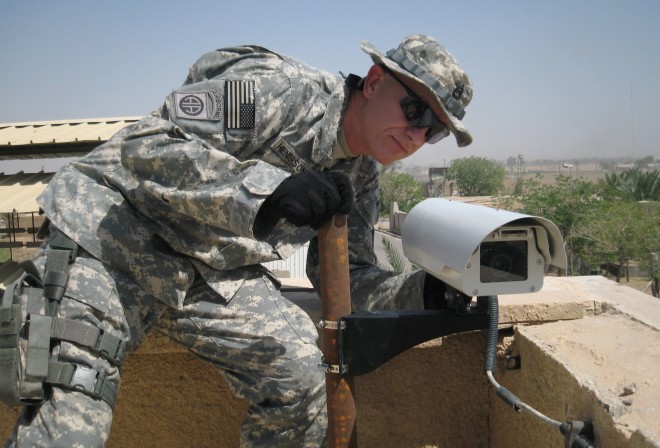Politics
REPORT: Pentagon’s ‘Secret Service’ Monitors Americans’ Social Accounts For Negative Comments On Military Generals

The United States military has been running a covert operation to monitor criticism of its top brass, with surveillance efforts going so far as to pinpoint the exact coordinates of Americans who express their dissent on social media.
A new report by The Intercept details ongoings inside the U.S. Army Protective Services Battalion, which is tasked with safeguarding top generals from “assassination, kidnapping, injury or embarrassment.” That definition has in recent years been applied to criticism online, opening the army’s vast resources to sleuthing on anyone it deems to have made “direct, indirect, and veiled” threats and or expressed “negative sentiment” of its leadership, according to government procurement records from September 2022.
Ilia Siatitsa, program director at Privacy International, told The Intercept that while federal agencies may have legitimate reasons to monitor social media for dangerous words or actions, the Army’s latest definition stretches the boundary between freedom of expression and Orwellian surveillance.
“There may be legally valid reasons to intrude on someone’s privacy by searching for, collecting, and analyzing publicly available information, particularly when it pertains to serious crimes and terrorist threats,” Ilia Siatitsa, program director at Privacy International, told The Intercept. “However, expressing ‘positive or negative sentiment towards a senior high-risk individual’ cannot be deemed sufficient grounds for government agencies to conduct surveillance operations, even going as far as ‘pinpointing exact locations’ of individuals. The ability to express opinions, criticize, make assumptions, or form value judgments — especially regarding public officials — is a quintessential part of democratic society.”
In its post on a government contracting website, Army officials describe its need for contractors who are capable of supporting its efforts to spy on Americans.
“This is an ongoing PSIFO/PIB” — Protective Services Field Office/Protective Intelligence Branch — “requirement to provide global protective services for senior Department of Defense (DoD) officials, adequate security in order to mitigate online threats (direct, indirect, and veiled), the identification of fraudulent accounts and positive or negative sentiment relating specifically to our senior high-risk personnel.”
The request goes on to say that the Army hopes to acquire a “reliable social media threat mitigation service” with “Open-Source Web based tool-kit with advanced capabilities to collect publicly available information.” The toolkit would “provide the anonymity and security needed to conduct publicly accessible information research through misattribution by curating user agent strings and using various egress points globally to mask their identity.”
Citing its access to the Twitter “firehose” which provides full access to all public tweets in real-time, the Army added it will need support for monitoring popular sites like Twitter and Facebook, but also less public sites like Discord and the anonymous 4chan message board, ostensibly for “identifying counterterrorism and counter-extremism and radicalization.” The procurement document goes on to say that the Army can provide its vendors with “geo-fencing” technology to help identify the geographical location of a social media user.
Concern about surveillance of Americans has been a common theme in public life going back to the first evidence of state-sponsored domestic surveillance at the NSA, FBI, and other federal agencies more than a decade ago. Democratic candidate for president Robert F. Kennedy, Jr. has made his opposition to state surveillance a centerpiece of his campaign against President Joe Biden, promising a three-pronged plan to dismantle the spy agencies if elected.

